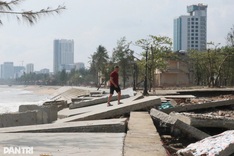The number of apartments offered for sale in Hanoi during the third quarter of this year was just equal to 40% of those available a year earlier.
 |
| Decree No. 71 tightens control over realty trading through capital contribution contracts |
Only 1,900 apartments were for sale in Hanoi between July and September versus 4,600 in the second quarter, according to figures from CBRE and Savills.
CBRE attributed the sharp decline to Decree No. 71 which was put into effect on August 8. Under the decree, a maximum 20% of total apartments can be sold under the form of capital contribution contracts.
Savills said that just one third of the total number apartments up for sale were actually sold during the quarter. Tu Liem District gained the highest sale rate of 42%.
Additionally, every lunar July often sees sluggishness in the Vietnamese housing market because many investors and buyers think that the month is unlucky for their transaction activities.
Meanwhile, many investors have still delayed their sales plans to the end of the year when the local realty market is quiet.
However, firms started construction on many low-priced apartment projects in the third quarter in 2010, giving opportunities to low-income people.
Experts said a range of mini apartment projects is expected to further stabilise the Vietnamese property market. Price of each mini apartment situated in Ngo Thi Nham Street in Ha Dong District, the first of its kind in Vietnam, is about half as expensive as commercial apartments of the same quality.
Despite limitations in buying low-priced houses imposed on several groups of customers, the abundant supply is likely to lower prices of commercial apartments.
By late this year, more than 3,000 apartments will have been on sale in Hanoi, raising the city’s total supply for the whole year to 16,000.
Decree No. 71 is hoped to make the local realty market become more open and transparent as well as prevent risks of realty bubbles.




















